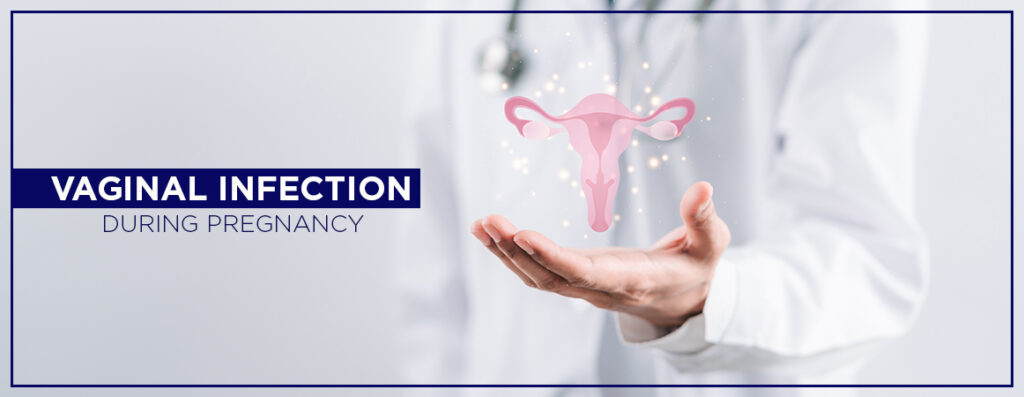Vaginal Infection During Pregnancy
Causes of Vaginal Infection During Pregnancy
Vaginal infections during pregnancy can occur for several reasons, many of which are linked to the hormonal changes your body undergoes. These changes in hormones may have an impact on the vaginal environment, increasing the risk of infection.
One of the most common causes of vaginal infection during pregnancy is a yeast infection, also known as vaginal candidiasis. The hormonal fluctuations during pregnancy, particularly the increase in estrogen levels, can cause the vagina to produce more glycogen, which feeds the Candida, leading to an overgrowth.
Another common cause of vaginal infection during pregnancy is bacterial vaginosis (BV). When the natural bacteria in the vagina are out of balance, BV happens. Pregnant women are particularly vulnerable to bacterial vaginosis (BV) due to differences in the pH levels in the vagina. If BV is not treated, it might result in more severe side effects like low birth weight or premature childbirth.
Symptoms of Vaginal Infection During Pregnancy
Recognizing the symptoms of vaginal infection during pregnancy is the first step in seeking treatment. Common symptoms include:
- Itching or irritation: Vaginal itching is a common sign of a yeast infection.
- Unusual discharge: A thick, white, cottage cheese-like discharge is typical of a yeast infection, while a thin, grayish-white discharge with a fishy odor may indicate bacterial vaginosis.
- Burning sensation: A burning sensation, especially during urination or intercourse, is another common symptom of vaginal infection during pregnancy.
- Vaginal discomfort: General discomfort or pain in the vaginal area is also a possible symptom of infection.
Understanding Vaginal Yeast Function
The vagina has its ecosystem, which includes beneficial bacteria and yeast like Candida. Under normal conditions, these microorganisms coexist in balance, helping to maintain the vagina’s health by preventing harmful bacteria from growing out of control.
However, during pregnancy, the vagina’s yeast function can become disrupted due to hormonal changes, leading to an overgrowth of Candida. The uneasy signs of a yeast infection are brought on by this overgrowth.
Treatment Options for Vaginal Infection During Pregnancy
Treating a vaginal infection during pregnancy is important for both maternal comfort and the health of the baby. The kind of infection and the intensity of the symptoms will determine the course of treatment.
Antifungal medications are the most common treatment for yeast infections. These are usually prescribed as creams or suppositories that are applied directly to the vagina. It’s important to note that not all antifungal medications are safe for use during pregnancy, so it’s essential to consult with a healthcare provider before starting treatment.
Bacterial vaginosis, on the other hand, is typically treated with antibiotics that are safe to use during pregnancy. Left untreated, BV can increase the risk of preterm birth, so early diagnosis and treatment are crucial.
Preventing Vaginal Infections During Pregnancy
While vaginal infections can be common during pregnancy, there are steps you can take to reduce your risk. These include:
- Maintain good hygiene: Regularly washing the vaginal area with mild, unscented soap and water can help prevent infections. Douching should be avoided since it may upset the vagina’s normal bacterial balance.
- Wear breathable clothing: Opt for cotton underwear and avoid tight-fitting pants, which can create a warm, moist environment where Candida thrives.
- Healthy diet: Eating a balanced diet rich in probiotics, like yogurt, can help maintain a healthy balance of bacteria in the vagina.
- Manage blood sugar levels: High blood sugar levels can contribute to yeast overgrowth, so it’s important for pregnant women, particularly those with gestational diabetes, to manage their blood sugar carefully.
Conclusion:
Vaginal infection during pregnancy is a common but manageable condition. By understanding the causes of vaginal infection during pregnancy, recognizing the symptoms, and seeking appropriate treatment, you can protect your health and ensure a healthy pregnancy.
Post Disclaimer
The information contained in this post is for general information purposes only. The information is provided by "Vaginal Infection During Pregnancy "and while we endeavour to keep the information up to date.
Legal Disclaimer
We do not claim to cure any disease which is considered’ incurable ‘ on the basis of scientific facts by modern medicine .The website’s content is not a substitute for direct, personal, professional medical care and diagnosis. None of the medicines mentioned in the posts ,including services mentioned at "medicineguide.us" should be used without clearance from your physician or health care provider.
Testimonials Disclaimer– : Results may vary, and testimonials are not claimed to represent typical results. The testimonials are real, and these patients have been treated with homeopathy treatment from our clinic . However, these results are meant as a showcase of what the best, Medicine can do with their disease contions and should not be taken as average or typical results.


